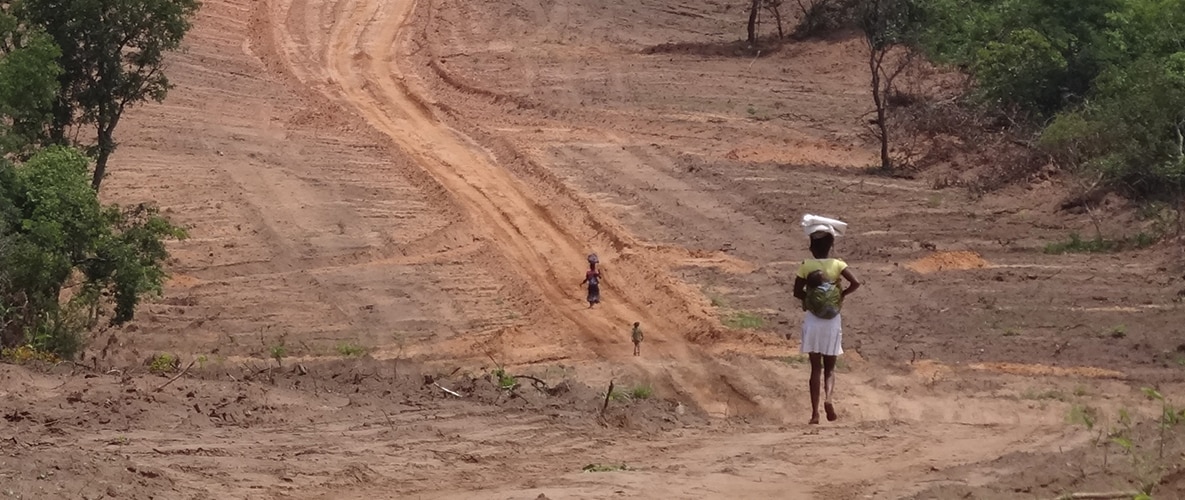CDC in Angola

The Centers for Disease Control and Prevention (CDC) officially opened an office in Angola in October 2002. CDC Angola provides critical support to the Ministry of Health (MOH) on a range of health issues, including COVID-19, HIV/AIDS epidemic control, reducing the burden of tuberculosis, addressing malaria, and strengthening the skills of the public health workforce.
COVID-19
The first case of COVID-19 in Angola was confirmed March 21, 2020. Since the pandemic was declared, CDC supported Angola through technical collaboration and procurement of laboratory supplies. CDC is also leading an impact evaluation of COVID-19 health communication messaging to help inform the MOH’s ongoing communication strategies. Prior collaboration to strengthen laboratory and disease surveillance systems provided a foundation for CDC to support:
- Increased access to COVID-19 tests and reagents
- COVID-19 surveillance
- Increased workforce capacities in COVID-19 testing, data analysis, and use of personal protective equipment (PPE)
CDC provided over 33,000 COVID-19 tests and reagents and trained 345 laboratory technicians in four provinces on testing methods
CDC helped incorporate COVID-19 data into the national health data collection system, standardize reporting, and train over 100 data technicians in five provinces to manage and analyze data
CDC provided hardware and helped establish an electronic laboratory information system to strengthen COVID-19 surveillance
CDC supported training for over 1,000 healthcare workers in 83 health facilities on COVID-19 testing and the use of PPE
Health Systems Strengthening
CDC Angola works closely with the National AIDS Program and National TB Program to support establishment and strengthening of Angola’s health information systems and workforce. CDC also supports the MOH with outbreak investigations, disease surveillance, epidemiology, and laboratory diagnostics for diseases such as COVID-19, polio, and malaria.
Field Epidemiology Training Program
CDC helps the MOH implement the Field Epidemiology and Laboratory Training Program (FELTP) and complementary, shorter applied epidemiology courses. FELTP residents support the MOH by:
- Conducting epidemiologic surveys and investigations
- Evaluating surveillance systems
- Implementing disease control and prevention measures
- Reporting findings to decision- and policy-makers
- Assessing HIV data collection, reporting systems and treatment adherence rates
- Supporting partner notification services in model clinics supported by the U.S. President’s Emergency Plan for AIDS Relief (PEPFAR)
HIV/AIDS
CDC collaborates with the MOH to address HIV/AIDS through PEPFAR. Since first engaging with Angola, CDC transitioned from emergency response to an approach of sustainability and shared responsibility for epidemic control. CDC also supports an integrated approach to HIV and tuberculosis (TB) care and treatment in community settings. In close partnership with the MOH, CDC strengthens laboratory and workforce capacity, health information systems, and disease surveillance by:
- Training healthcare professionals in HIV care and treatment
- Strengthening the quality, coverage, and monitoring of HIV and TB testing, diagnosis, and service delivery
- Supporting scale-up and enhancement of tools for viral load (VL) monitoring of people living with HIV
In 2020, CDC began supporting the Born Free to Shine Initiative in four provinces to eliminate mother-to-child transmission of HIV
Malaria
The entire Angolan population is at risk for malaria, but transmission patterns vary by geographic location. Under the U.S. President’s Malaria Initiative (PMI), CDC assigned a resident advisor to support implementation of malaria control measures in six provinces. Through PMI, CDC partners with the National Malaria Control Program (NMCP) to:
- Provide long-lasting insecticide treated mosquito nets
- Conduct mosquito surveillance
- Prevent malaria in pregnancy
- Train healthcare workers in diagnostics, prevention, and case management
- Track diagnoses at facility, municipality, and provincial levels to direct medications, tests, and health worker trainings to areas with highest incidence and prevalence of malaria
In 2019, 120 community health workers were trained in malaria case management and facilitation of prompt and appropriate treatment in communities with limited access to health services
Angola completed a Therapeutic Efficacy Survey to look for possible markers of anti-malarial resistance in 3 provinces in 2019
In 2019, 945,000 antimalarial treatment courses and 1,600,000 malaria blood tests were distributed in Angola
Laboratory Systems Strengthening
Strong laboratory systems allow for rapid detection of emerging pathogens and safer handling and transportation of laboratory samples. CDC assists the MOH to enhance the sustainable and integrated laboratory network, which is a core component of the overall healthcare system. This assistance includes:
- National assessment of the tiered public health laboratory system
- National strategic plan to strengthen the public health laboratory network
- Implementation of laboratory quality systems through the Strengthening Laboratory Management Towards Accreditation (SLMTA) program
- Increasing blood safety
- 1 U.S. Assignee
- 4 Locally Employed
- Population: > 32 million
- Per capita income: $6,020
- Life expectancy: F 63 / M 59 years
- Infant mortality rate: 62/1,000 live births
Sources: World Bank 2020, Population Reference Bureau 2021, Angola